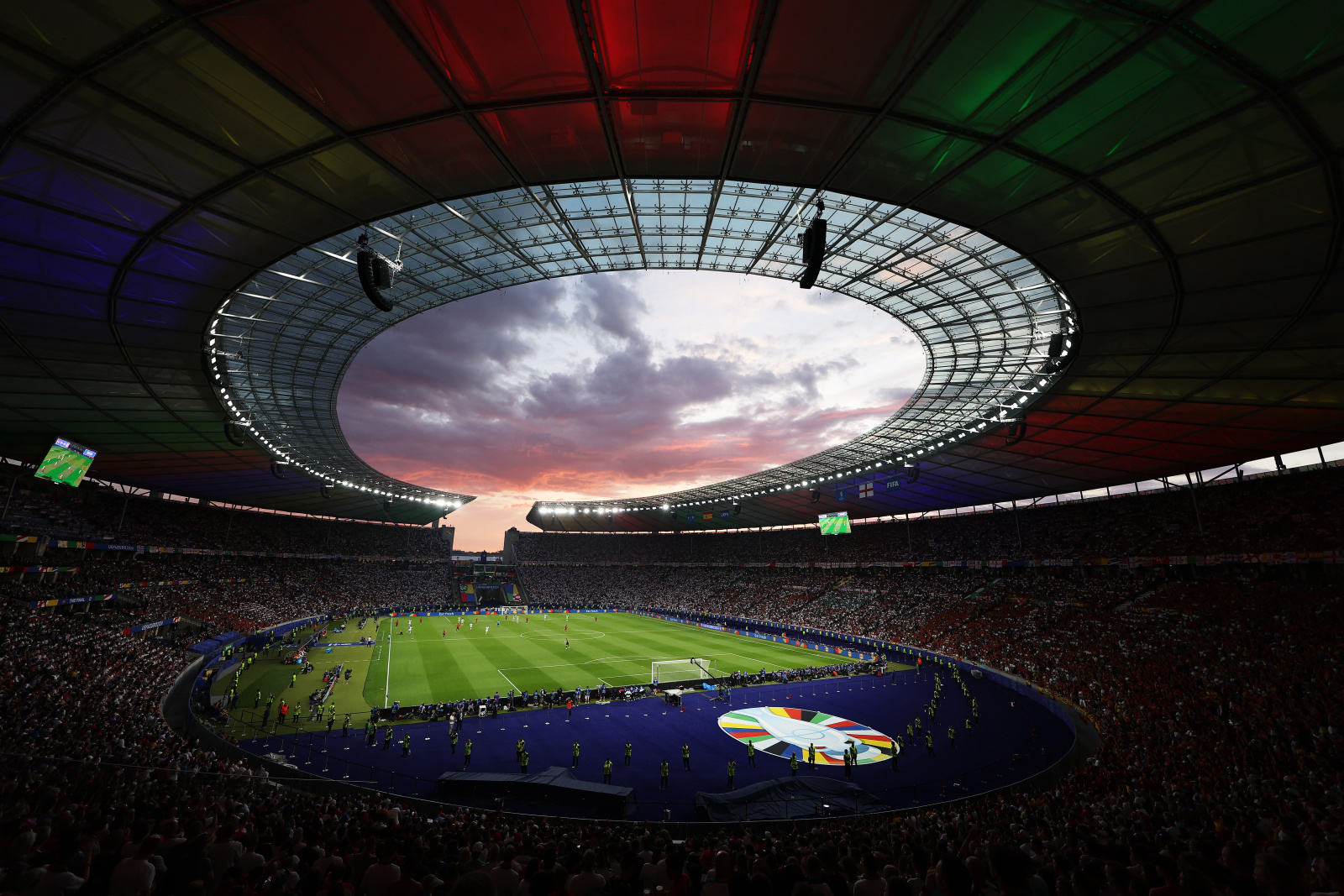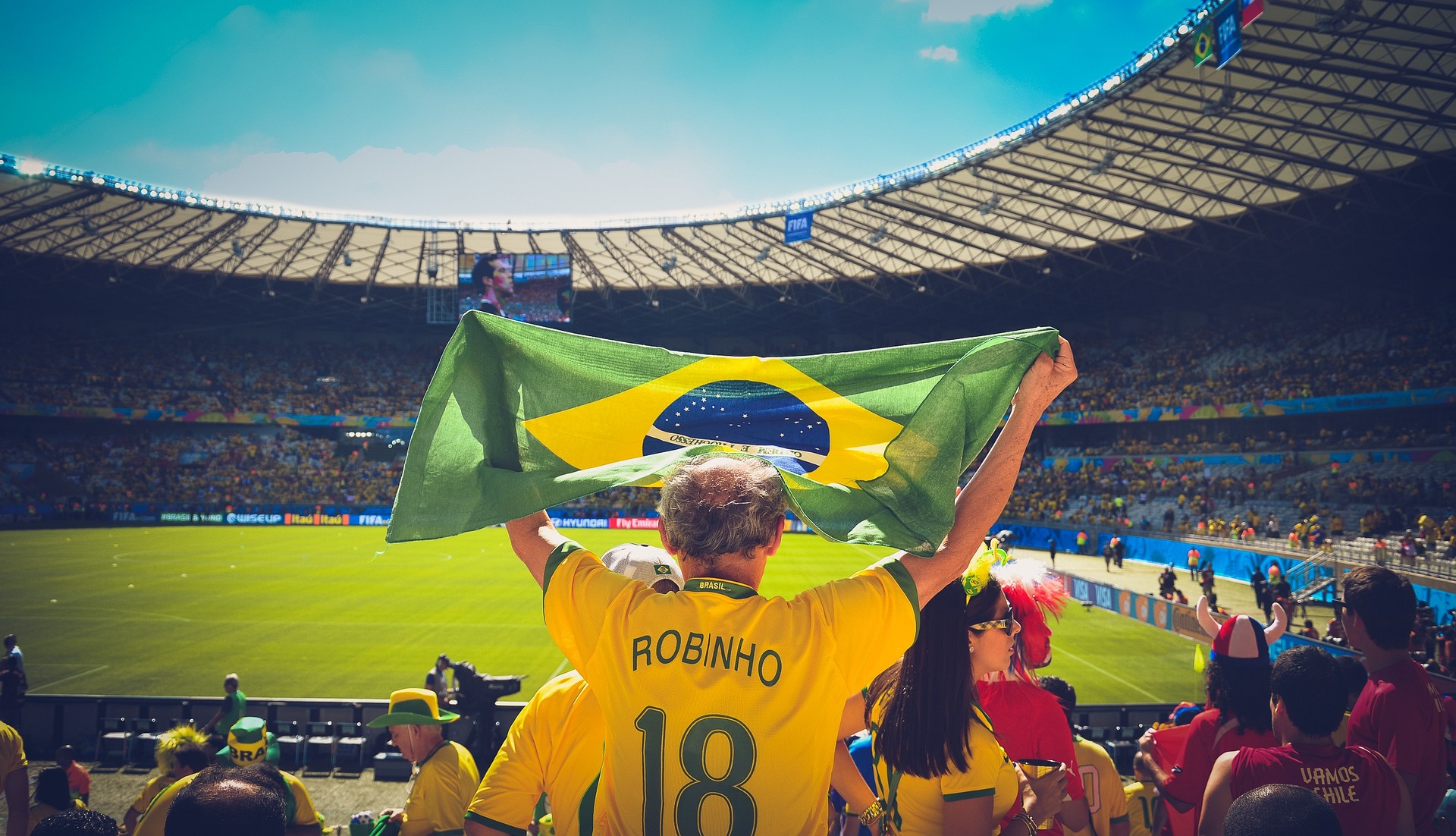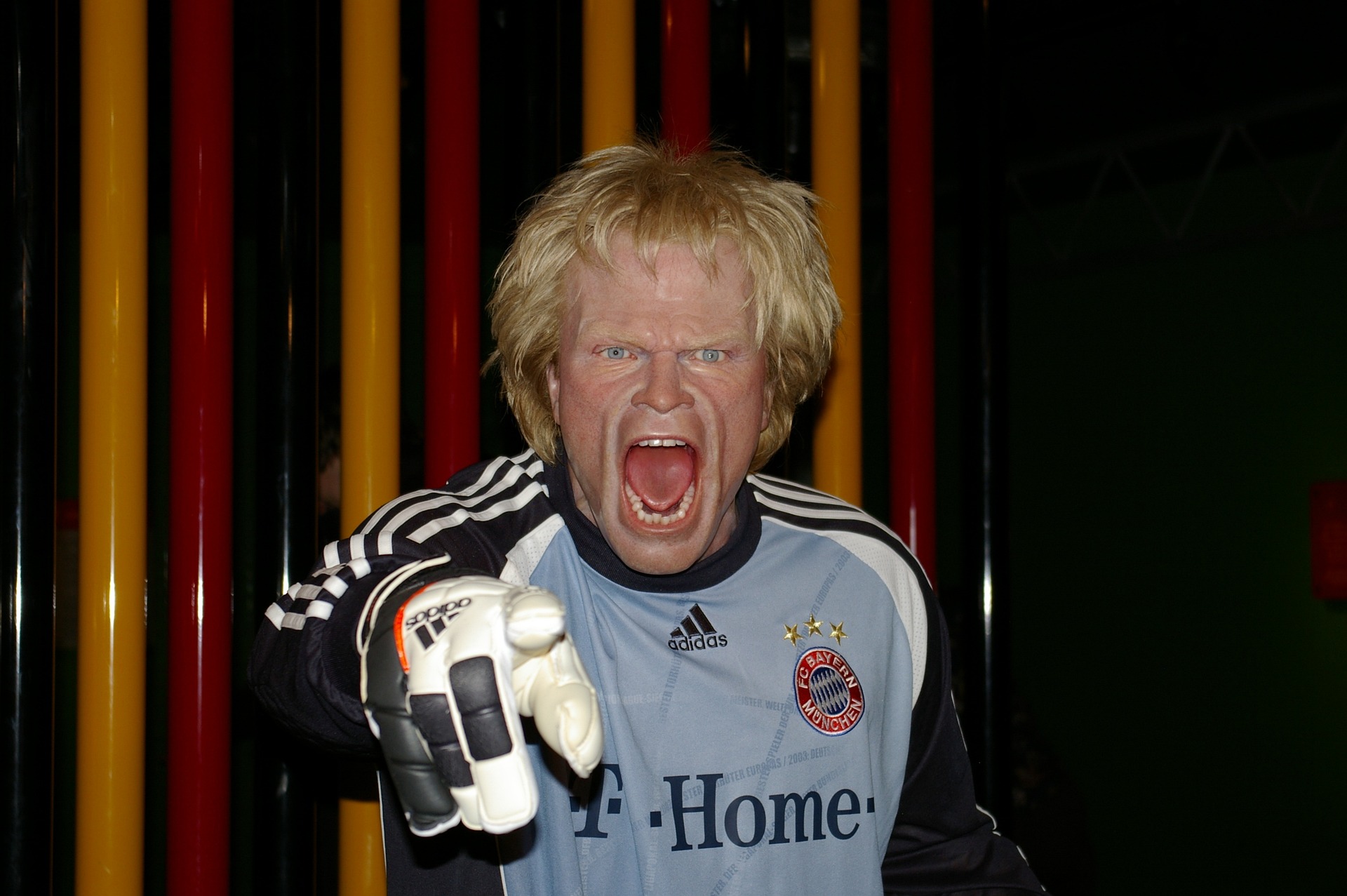Why do teams have FC in their name


Table of Contents
Football Club (FC) is a popular term used to name football teams worldwide, but why do teams have FC in their name? Soccer, as it is widely known, has ancient roots. There is history behind using FC in a team’s name.
The first Football Clubs were founded by wealthy athletes. They were exclusive clubs with access to the best playing fields. These clubs were seen as elitist and they often played against each other.
Over time, more people became interested in the sport. Thus, new teams formed in different countries. ‘Football Club‘ was a way to identify these teams.
However, some clubs don’t use Football Club, but rather words such as Association or Athletic in their names. Despite this difference, all these teams have ties to the development of football.
It’s important to remember that the term ‘FC’ has more significance than just being added to team names – it marks the growth and development of football worldwide.
Why do teams have FC in their name?
To understand the meaning of Football Club (FC), you need to know the significance of football in different cultures and the various interpretations of FC across countries. Delve into the sub-sections to gain insight into the different ways FC is perceived around the world.
The Significance of Football in Different Cultures
Football, also called soccer in some nations, is of great importance to many cultures globally. The game brings people together, creating a sense of unity between them.
From supporters around the globe to players who represent their countries on the international stage, football has become deeply ingrained in various cultures. It is more than just a sport; it is an expression of cultural identity and pride, connecting people from different races, genders, and nationalities.
Its appeal lies in its simplicity – anyone can play, no matter their economic status or social background. It is one of the most widely watched sports worldwide, transcending borders and language barriers.
Despite different levels of success in different regions, football continues to be popular, through grassroots programs and club structures. As fans get into the intricacies of the sport – rivalries between clubs; shared laughter from unbelievable moves – Football Club (FC) becomes an institution in society.
So, being part of an FC creates a feeling of inclusion across the globe. Anyone passionate about football will want to be a part of these experiences with like-minded people – the fear of missing out is real! Why explore the world when you can just debate the meaning of ‘FC’ in different countries?
Different Interpretations of Football Club (FC) Across Various Countries
A comparison of the numerous interpretations of the term ‘Football Club (FC)’ around the globe shows remarkable differences in their meanings and purposes. ‘FC’ takes on various connotations of a country’s culture, history, politics, and social organization.
| Country | Interpretation |
|---|---|
| England | FC is a professional football team that plays in domestic and international leagues. |
| Spain | FC stands for a football club known for its heritage, fan base, and world-wide appeal. |
| Brazil | FC symbolises local neighborhood-based teams of amateur football players who play street-level games. |
| Germany | FC represents a sports club with a wide range of activities for public health, culture, and socialising, apart from football. |
Some European nations use ‘FC’ for ‘Football Club,’ while others use their local languages. For example, in France they use ‘Association Football’ instead of ‘Football Club,’ which conveys a similar idea, yet with different connotations.
Moreover, in areas like Africa or Asia, Football Clubs vary greatly according to economies and cultures, reflecting traditional values such as family orientation, hospitality, or a hierarchical system within the clubs.
A potential way forward is for clubs to adapt to local demographics, like representing various ethnicities or attracting younger audiences through digital campaigns on social media platforms like Instagram or TikTok. This could open up new sources of income, like merchandise sales and sponsorship deals with local companies, exemplifying ‘glocalization.’ Why stick to conventional team names when you can make them sound more impressive by adding FC?
The Importance of FC in Team Names
To understand why teams have FC in their name, dive into the importance of FC in team names, focusing on branding and marketing, tradition and heritage, and identity and unity. Each of these sub-sections offers unique solutions to why teams opt for adding FC in their name, and collectively aid in getting a better insight into the reason for this trend.
Branding and Marketing
Sport and business have joined forces, creating a rising market for team branding and marketing. A team’s brand is its story, values, identity, culture and more – all encapsulated in one logo, design and name. Making an impact with this representation is vital for the team’s marketing, as it attracts investors, sponsors, stakeholders and fans.
A team’s name should not be taken lightly, so adding ‘FC‘ (Football Club) is wise. It implies a sense of tradition, history, class and excellence. It expresses unity and a professional team culture, connecting with football fans around the world.
Using a location or mascot in a team name can limit global recognition. ‘FC‘ increases appeal to international markets, as soccer fans understand this club identifier. Adding ‘FC‘ to the team name results in higher fan involvement and increased profits.
The likes of Manchester United FC, Liverpool Football Club and FC Bayern Munich are excellent examples of teams that have done well by using ‘FC‘ in their names. Team names without tradition and heritage are pointless – like a goalkeeper without hands!
Tradition and Heritage
Team names steeped in age-old customs and history form a distinct identity. This helps pass down team legacies through the generations. Incorporating tradition and heritage into team names is not just an act of reverence, but also a way to honour founding principles. This increases team unity and gives members a sense of belonging.
Leading to success, both on and off the field, perpetuating age-old customs can be beneficial. Creating a unique team name can involve cultural symbols or objects. Local traditions can be added to play-styles and game tactics, showing respect to the traditions and giving depth to the identity.
Team names unlock a sense of identity and unity among players, like personal passwords do for accounts.
Identity and Unity
The inclusion of ‘FC‘ in team names brings Identity and Unity to players and fans. It stands for ‘Football Club’ and shows loyalty to the sport. It’s not only used by professional and semi-professional teams, but also amateur ones. This helps create a perception of professionalism.
Roman numerals can be added after ‘FC‘ to denote a team’s long history. This works particularly well in global tournaments and European leagues, where fans support teams from different countries. For example, Liverpool FC, Manchester United FC and Real Madrid CF.
Adding ‘FC‘ to a team name represents hard work, passion, and discipline. It dates back to the 19th century when many local teams started using ‘Town/City Football Club’ as their name. Nowadays, teams just add ‘FC‘ and they’re good to go.
Popular Teams with FC in Their Name
To explore why popular teams have FC in their name, the section with popular teams with FC in their name with sub-sections Manchester United FC, FC Barcelona, AC Milan, Real Madrid CF, and FC Bayern Munich will shed light on the rationale behind this common terminology.
Manchester United FC
The Red Devils, also known as Man Utd, are one of the most popular football clubs worldwide. They have achieved an impressive feat by winning 20 English Premier League titles and three European Cup/Champions Leagues trophies.
Their worth is valued at over £3 billion. They have millions of fans all over the globe. Man Utd was founded in 1878 and has seen some of the greatest players in history play for them – George Best, David Beckham, Eric Cantona, Cristiano Ronaldo, to name a few.
Furthermore, they have one of the best youth academies in the Premier League. Marcus Rashford and Mason Greenwood are two of their most talented stars that have made the academy a crucial part of their success.
A great way to show your support for Man Utd is to wear an official jersey and display their logo merchandise. This is a great way to stand out from other fans and contribute to the club’s growth by generating merchandise revenue.
FC Barcelona
FC Barcelona is one of the most popular teams with “FC” in their name. They play in La Liga, a professional football league based in Spain. This club stands out with their iconic red and blue vertical stripes uniform. Founded in 1899, they have won many titles such as 26 La Liga titles, five Champions League titles, and four Club World Cup titles.
Lionel Messi, considered one of the best footballers of all time, has played for this team. La Masia, their youth academy, has also produced some of the top talents in the world.
FC Barcelona is constantly striving for excellence both on and off the pitch. They are engaged in social activities and fighting for causes like gender equality and environmentalism.
If you’re a fan of FC Barcelona or any other team with “FC” in their name, you can stay updated on their news and achievements by following them on social media.
AC Milan
The Rossoneri, commonly known as AC Milan, is one of the world’s greatest football clubs. Founded in 1899, this iconic team has achieved much success, sporting its iconic black and red kit. They have won 18 Serie A titles and 5 UEFA Champions League crowns – thanks to their top talent such as Paolo Maldini, Marco Van Basten and Kaka. They’ve also won a handful of cup titles like the Coppa Italia.
AC Milan is unique for its commitment to excellence both on and off-field. They were the first club to build a facility solely for training while other teams use stadiums. Watching AC Milan play is like taking in an opera with breathtaking skills and attacking football.
For AC Milan fans, keep an eye on their midfielders like Ismaël Bennacer who controls the pace and tempo. Each player usually gets chances to score goals from every position – causing problems for opponents. Real Madrid CF has an even more crowded trophy cabinet than the subway at rush hour!
Real Madrid CF
Real Madrid Club de Fútbol, known as ‘Los Blancos’, or simply ‘Madrid’, is a renowned football team. They have won 34 La Liga titles and 13 UEFA Champions League titles.
This success is largely due to iconic players like Cristiano Ronaldo, Zinedine Zidane and Iker Casillas.
The team’s style of play is marked by flair, elegance and precision. They have been praised for their attacking prowess and undying spirit on the field. The club has had legendary coaches such as Jose Mourinho, Vicente del Bosque and Carlo Ancelotti.
Real Madrid’s fan base is massive worldwide. The supporters are fiercely devoted to the team and regard it as more than a sports club.
It’s time to add Real Madrid to your bucket list! Watching them play live is an unforgettable experience. Don’t miss out on being part of this legendary team’s history!
FC Bayern Munich
FC Bayern Munich is a legendary football club based in Munich, Germany. It’s renowned for its rich history and outstanding performance on the pitch. They have won 30 Bundesliga titles and seven UEFA Champions League titles, among other national and international trophies.
This team stands out due to its unique ownership: it’s member-owned, with fans holding a majority stake through voting.
It’s said that during WWII, Allied prisoners of war would play matches with a ball stolen from their German captors. On the ball was an insignia of FC Bayern Munich.
FC Bayern Munich has earned a place as one of Europe’s premier football clubs. Their success is admired by fans worldwide. For them, FC stands for Family and Crazy passion.
Conclusion: The Significance of FC in the World of Football.
The abbreviation FC has great standing in the football world. It stands for “Football Club“, symbolizing competition, identity and community. Additionally, it carries a sense of tradition and history with it, adding value to the team’s name.
FC is mainly used in European football leagues and dates back to the 19th century. It was adopted by football clubs to differentiate themselves from cricket or rugby clubs. Now, it is a standard nomenclature for football clubs across the world.
Moreover, FC in a team’s name means that they are more than just businesses. They represent not only their region but also have a fan base that identifies with them.
However, some successful football clubs do not use this nomenclature. Take Real Madrid CF and Barcelona CF for example; they incorporate “CF” which means “Club de Fútbol” or “Football Club“.
In conclusion, though not all teams have an ‘FC’ in their name, it does emphasize tradition and club identity within the sport globally. Moreover, it reinforces the core values of sportsmanship and community spirit that football is known for.
It all began with English clubs adding FC to their names. This trend spread across various European countries, and now is an identifier for competitive football teams all over the world.
Why do teams have FC in their name – Frequently Asked Questions
Q. Why do teams use FC in their name?
A. FC stands for “football club” and is a common way for soccer teams to identify themselves. It is often used to signify a team’s commitment to the sport and to differentiate it from other types of football, such as American football.
Q. Do all soccer teams use FC in their name?
A. No, not all soccer teams use FC in their name. Some teams may use AC (athletic club), SC (soccer club), or other variations depending on their location or history.
Q. Where did the tradition of using FC in soccer team names come from?
A. The tradition of using FC in soccer team names originated in the United Kingdom in the 19th century. It was used to distinguish soccer teams from other types of football clubs and to emphasize the sport’s amateur roots.
Q. Is using FC in a team name mandatory?
A. No, using FC in a soccer team name is not mandatory. It is a convention that has become widely adopted, but teams are free to choose a name that reflects their identity and history.
Q. Do teams in other sports use FC in their name?
A. No, FC is primarily used as a designation for soccer teams. Other sports have their own conventions for naming teams, such as using the name of a city or a mascot.
Q. What does the FC stand for in team logos or crests?
A. The FC in team logos or crests stands for “football club”. It is often included as a way of identifying the team’s sport or as a nod to the team’s history and tradition.










